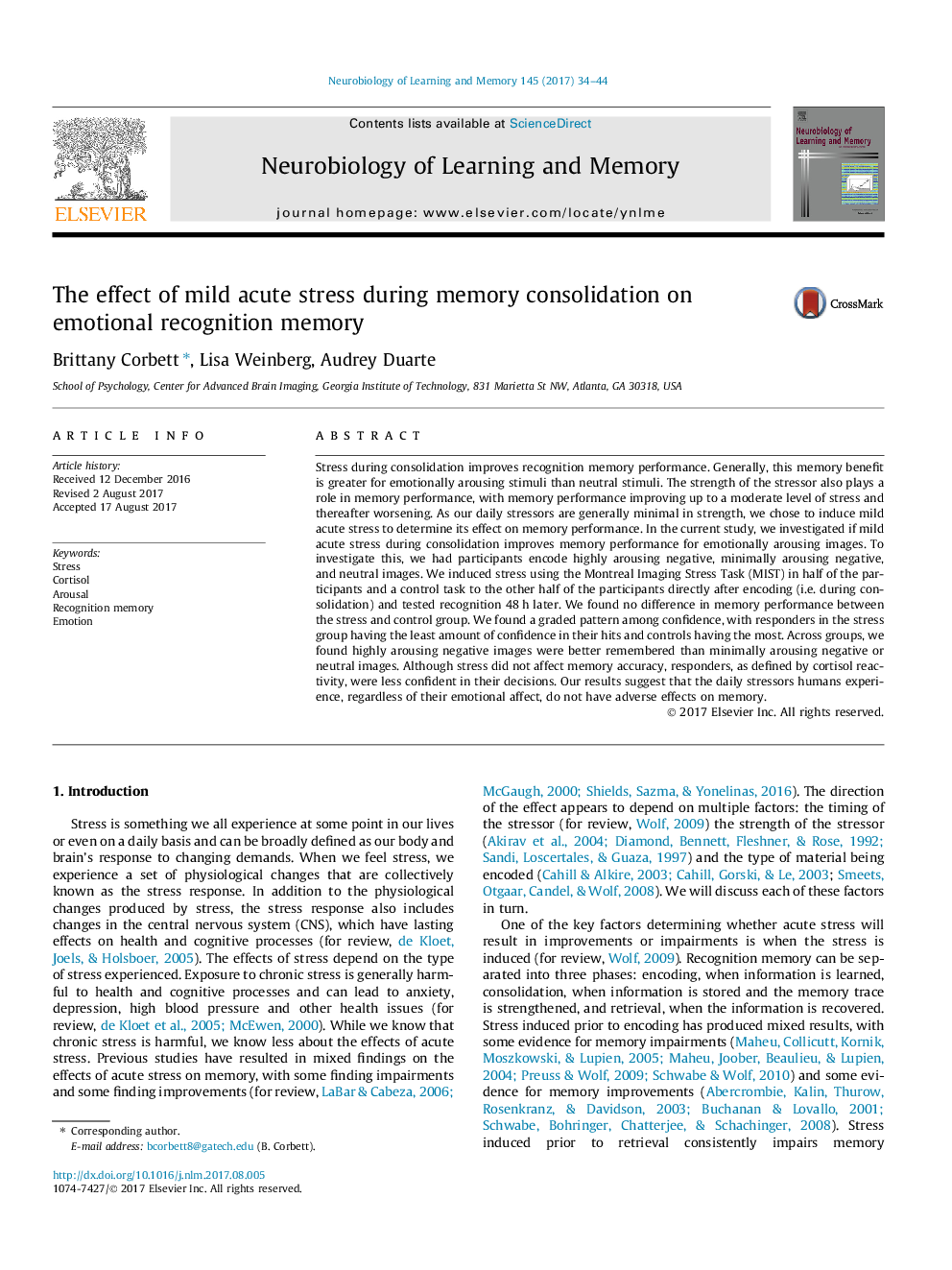| Article ID | Journal | Published Year | Pages | File Type |
|---|---|---|---|---|
| 5043081 | Neurobiology of Learning and Memory | 2017 | 11 Pages |
â¢Across groups, highly arousing negative images are better remembered than minimally arousing negative or neutral images.â¢Mild acute stress does not affect emotional memory performance.â¢Cortisol reactivity affects memory confidence.â¢Our daily stressors do not have an adverse effect on memory.
Stress during consolidation improves recognition memory performance. Generally, this memory benefit is greater for emotionally arousing stimuli than neutral stimuli. The strength of the stressor also plays a role in memory performance, with memory performance improving up to a moderate level of stress and thereafter worsening. As our daily stressors are generally minimal in strength, we chose to induce mild acute stress to determine its effect on memory performance. In the current study, we investigated if mild acute stress during consolidation improves memory performance for emotionally arousing images. To investigate this, we had participants encode highly arousing negative, minimally arousing negative, and neutral images. We induced stress using the Montreal Imaging Stress Task (MIST) in half of the participants and a control task to the other half of the participants directly after encoding (i.e. during consolidation) and tested recognition 48Â h later. We found no difference in memory performance between the stress and control group. We found a graded pattern among confidence, with responders in the stress group having the least amount of confidence in their hits and controls having the most. Across groups, we found highly arousing negative images were better remembered than minimally arousing negative or neutral images. Although stress did not affect memory accuracy, responders, as defined by cortisol reactivity, were less confident in their decisions. Our results suggest that the daily stressors humans experience, regardless of their emotional affect, do not have adverse effects on memory.
